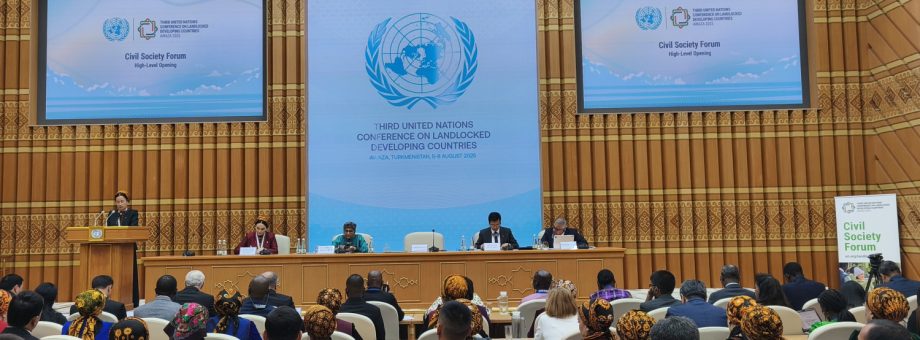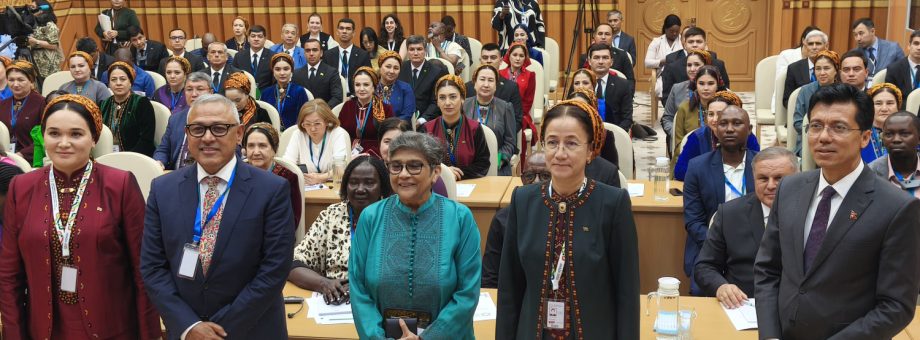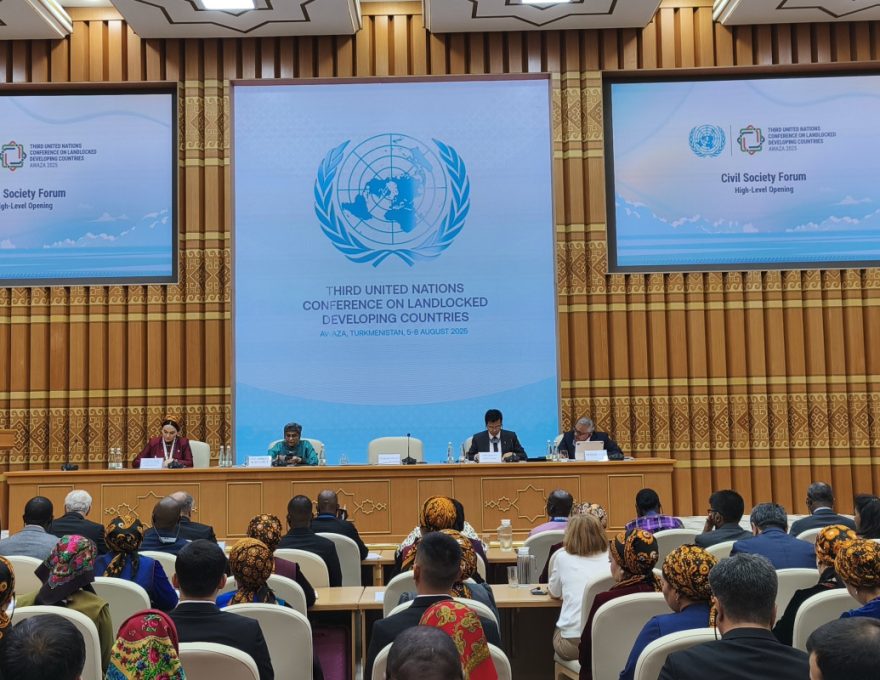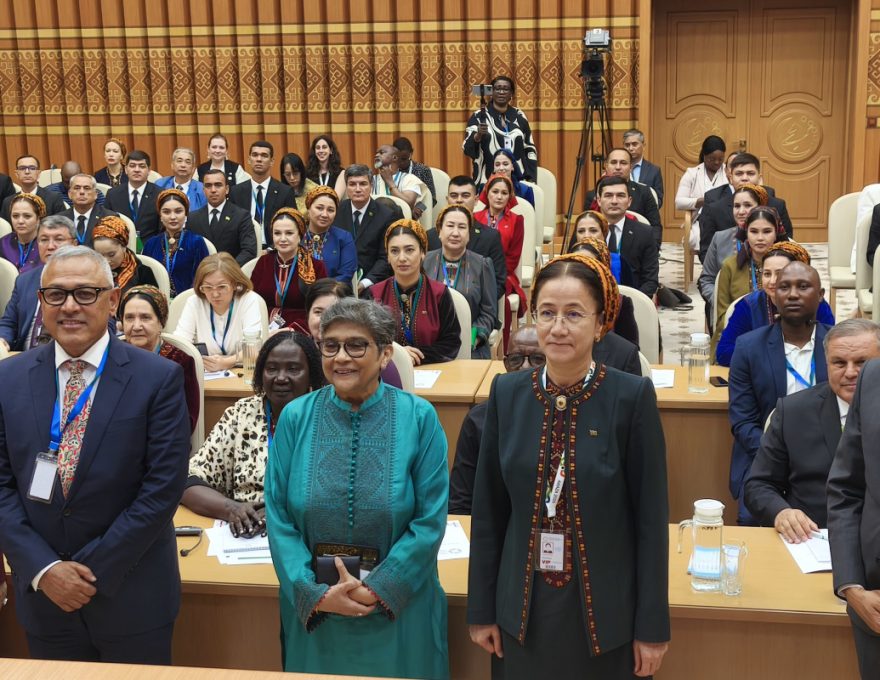Working together to achieve sustainable progress
On August 4, 2025, the Civil Society Forum, held within the framework of the Third UN Conference on Landlocked Developing Countries (LLDC), began its work in the Avaza National Tourist Zone.
The large-scale event was attended by the UN Deputy Secretary-General, the High Representative for the Least Developed Countries, Landlocked Developing Countries and Small Island States, the Deputy Chairman of the Cabinet of Ministers of Turkmenistan for Science, Education, Health, Sports, Youth and the Public, the Chairman of the National Center of Trade Unions, high-ranking officials of international organizations, civil society, and LLDCs.
Representatives of the Government of Turkmenistan and the UN, as well as civil society, spoke at the opening ceremony of the Civil Society Forum, which is being held for the first time in the history of the Conference on Landlocked Developing Countries.
UN Under-Secretary-General, High Representative for the Least Developed Countries, Landlocked Developing Countries and Small Island Developing States, Secretary-General of the Third UN Conference on Landlocked Developing Countries, Rabab Fatima noted that it was a great honor for her to speak at the first ever LLDC Civil Society Forum and expressed her sincere gratitude to the Government and people of Turkmenistan for the hospitality provided.
It was emphasized that the Avaza Action Program represents a roadmap for transformation to address the problems of LLDCs related to their geographical location.
In her speech, Rabab Fatima called on civil society to actively engage in the implementation of the Awaza Framework of Action and building a more sustainable and prosperous future for landlocked developing countries.
As was emphasized in the speeches of representatives of the Turkmen side, this Forum serves as an important platform for strengthening cooperation between states, international organizations, the private sector and, most importantly, civil society.
In his speech, the President of the UN Economic and Social Council (ECOSOC) Lok Bahadur Thapa emphasized that governments, the private sector, UN agencies and civil society must join forces to implement the Avaza Agenda for Action, noting the readiness of the structure he leads to support this cooperation.
Stressing that the proposals put forward during this Forum will have implications not only for the outcome of the Conference but also for the work of ECOSOC, Lok Bahadur Thapa called on the participants to show solidarity and work purposefully on the tasks set.
As noted during the Forum, civil society has an important role to play in promoting the Avaza Action Programme, which is aimed at ensuring the sustainable development of LLDCs.
The presentations also highlighted the key role of civil society in implementing inclusive initiatives necessary for the sustainable development of LLDCs.
The significant role of civil society in establishing interaction between government bodies, the private sector and the international community was noted. In this context, it was noted that recognition and support of the role of civil society within the framework of the Avaza Action Programme will contribute to the successful implementation of the tasks outlined therein, strengthening trust between its participants and forming a solid foundation for joint development.
During the Forum, priority tasks and proposals for the Declaration of Civil Society Organizations were also discussed.
This was followed by a thematic session on socially oriented structural transformations and environmental sustainability. The subjects of keen discussion were ways to achieve inclusive and sustainable development through economic diversification and responsible attitude to the environment with the active participation of civil society. An exchange of views also took place on promising areas of economic policy focused on the interests of people and consistent with such a relevant factor as environmental well-being.
As noted, support and development of civil society should become a priority of national strategies and international programs aimed at the long-term sustainable development of LLDCs.
Forum participants also emphasized the significant role of civil society in strengthening state and public institutions, which contributes to combining economic diversification with environmental sustainability in LLDCs.
At the same time, the importance of inclusive dialogue between government bodies, the private sector and civil society in developing comprehensive strategies that take into account the interests of all segments of the population and promote sustainable and inclusive development was noted.
The Forum also emphasized that support for civil society from governments and international organizations is a key condition for the successful implementation of the Avaza Action Plan.
The session, dedicated to the topic of socially oriented structural transformation and environmental sustainability, became an effective platform for mutually beneficial exchange of experience and development of specific recommendations for LLDCs. Its participants expressed confidence that the proposed approaches and ideas will contribute to the implementation of the Avaza Action Programme and the construction of a more prosperous future for landlocked developing countries.
Today, the Forum will continue its work.


 NEWS
NEWS



